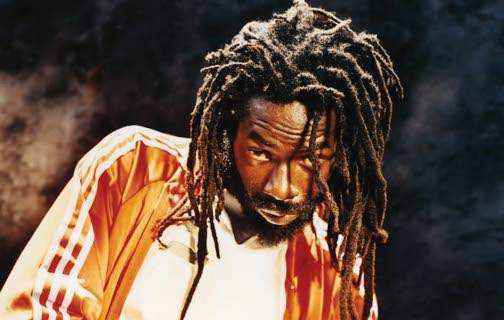Jamaican-born, poet and LGBTQ activist Staceyann Chin is weighing in on the legacy of ace deejay Buju Banton who was recently released from a United States prison on drug trafficking charges.
In an interview with Public Radio International (PRI) — an independent, non-profit, multimedia organisation that seeks to build knowledge and understanding of the world’s people, issues, and events through storytelling, Chin shared what she saw as a complicated relationship with the dancehall star.

“The optimist in me, the lesbian, Jamaican, activist optimist, the lover of where I’m from … it’s a very complicated place to sit, being more than one identity at the same time, and maybe those two identities don’t coexist comfortably. I grew up with reggae music ,and so there’s a part of me that really loves it and really answers to it when I hear it. I came out as a lesbian on the university campus in Jamaica and was violently assaulted by a large number of boys who wanted to — their intention must have been to either punish me for being gay or to convert me to being straight.
That violence lives with me my whole life. And so the two things inside of me are consistently at war. They are always talking to each other in loud voices, and they are always wrestling on a mat and they are always trying to find a way to live together because it is so much a part of me,” she told journalist Marco Werman on the PRI programme The World.
The complication of which she speaks came to the fore when asked she was asked how much does she thinl Buju Banton’s fans are aiding and abetting his life and his celebrity.
“Buju is, in every way, a human being just like me, just like you. But he’s also extraordinarily talented and extraordinarily able to speak from a place of deep truth about poverty in Jamaica, about people’s lives. He’s able to articulate an experience that has been missing from much of the music we call ours. Not since Bob Marley has there been an artiste that speaks with such truth, with such depth, with such beauty about the lives of poor people and the struggle to be recognised as human, for blackness and being from Africa to be the centre of one’s pleasure and one’s power.
Buju Banton’s rocky relationship with the gay community reached its peak with the 1992 release of Boom Bye Bye. Chin noted that she was a fan of the song when it was first released.
“The first time I heard Boom Bye Bye, I threw my hands up and sang along because I was a teenager in Jamaica. I sang with gusto along with my peers to the song. Later, I became aware of the fact that I wanted to partner with women, and it became complicated for me because the song was actually saying “kill gay people, kill gay men, shoot them in the head,” which is in no way permissible when you are a person who is gay because you’re actually advocating for the death of your own kind, your own person.
After the experience in Jamaica where I was attacked by some violent homophobes, I came to the US and started to articulate a politics around micro identity. I began to see how what I went through was not only problematic, but I began to see that I had a right to respond and I could join the fight to speak out against this kind of violence” Chin shared
“I don’t think that it is my place to forgive Buju Banton for “Boom Bye Bye.” I think he walks his own journey. I see him as a man who is, like me, trying to find his way in the world, trying to find his purpose, trying to do the things that he thinks are right. And if one of the things that he thinks is right is going to hurt somebody else, I’m going to take him to task for it, always. But I’m not going to try to obliterate him as a human being. You know, his music has been a trumpet for many, many people whose pain he speaks and sings and articulates in a very important way,” she continued.










